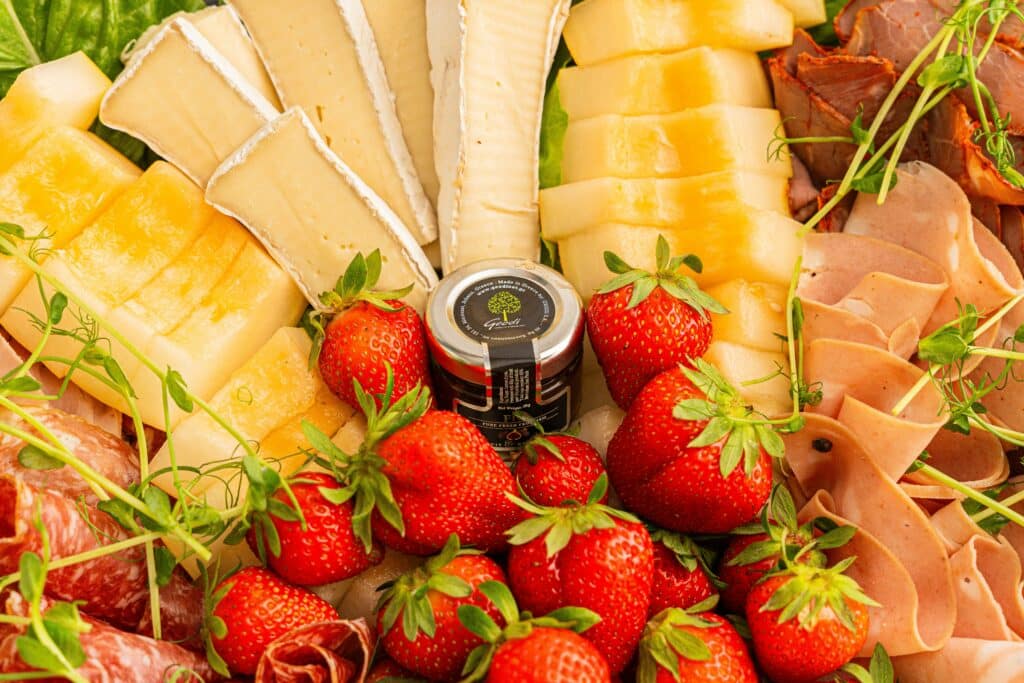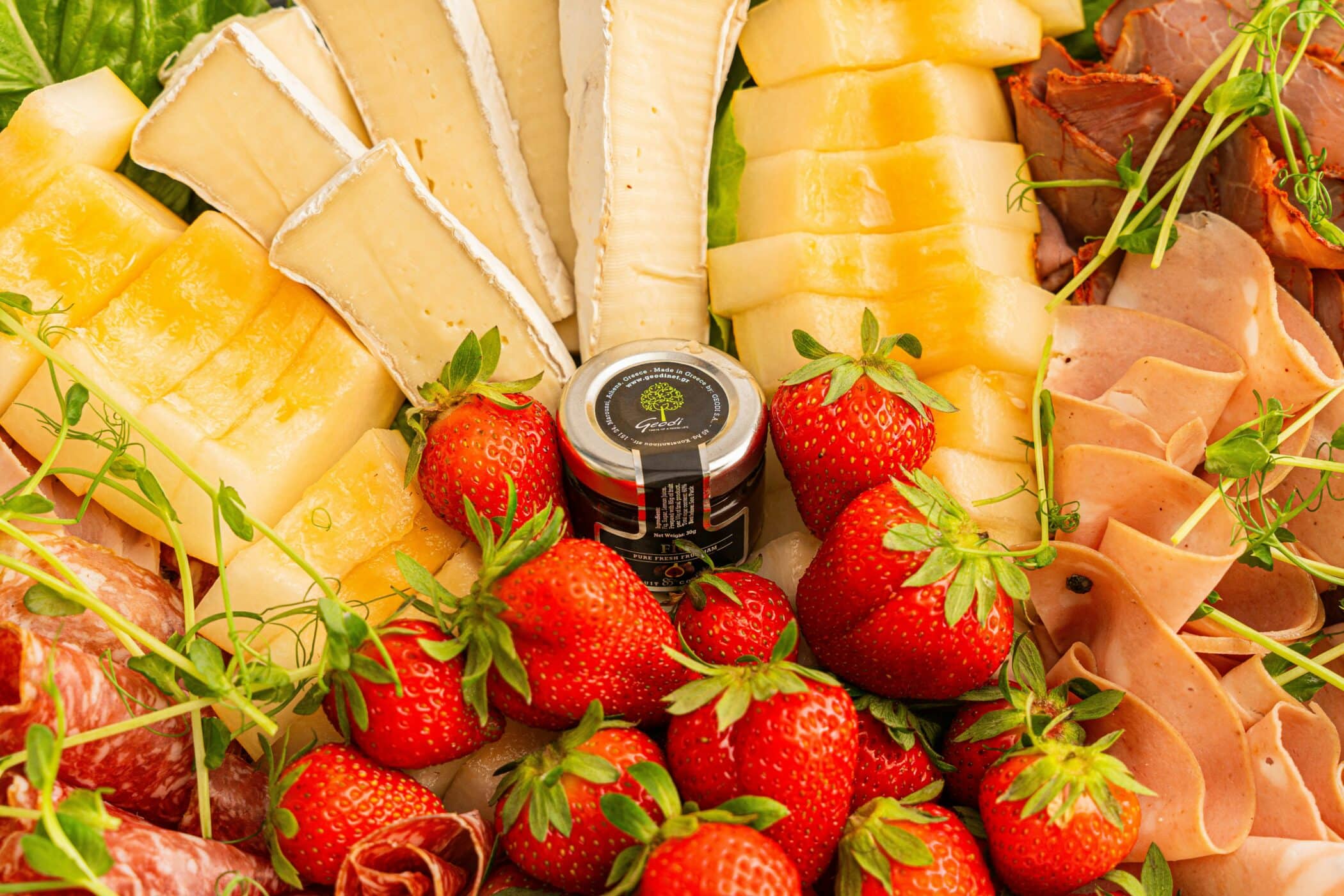
High blood pressure or hypertension often feels like a silent enemy that you can only manage with medication. But did you know the blood pressure solution can be found right there, on your plate? Food and blood pressure have a very unique relationship, and here’s everything you need to know about it.
Table of Contents
Does food affect blood pressure?
Yes, food can have a very strong impact on your blood pressure. The three main food groups that can elevate your high pressure are sodium, saturated fats, and sugars. Also, food can be the blood pressure solution, as fruits, vegetables, whole grains, and lean proteins have a proven record of lowering blood pressure.
Sodium is an essential mineral, and its duties in the body are of utmost importance, ensuring you have a proper fluid balance and that your muscles work properly. However, if you’re dealing with hypertension, you definitely want to cut back on it and control your sodium intake.
Firstly, this mineral has the effect of drawing water into your bloodstream. If you go overboard with high-sodium foods, your body will retain more water than needed, which puts intense pressure on your blood vessel walls and elevates your blood pressure levels.
It can also lead to blood vessels narrowing, which makes it harder for your body to pump blood through them, which again elevates your blood pressure. To avoid these issues, limit or remove these foods from your diet:
- processed meats;
- canned foods;
- salty snacks;
- condiments.
Another food group that can be very harmful to those who suffer from hypertension is saturated fats. They are known for raising bad cholesterol levels (LDL), which build up in your arteries and narrow them, leading to elevated blood pressure.
If consumed in bigger doses, saturated fats can also spike inflammation in the body, which can affect many cardiovascular conditions, with high blood pressure being one of them.
Hence, try limiting or removing these foods from your diet:
- full-fat dairy products;
- fatty cuts of meat;
- fried foods;
- processed snacks.
Last but certainly not least, sugary foods should be the least common ingredient on your shopping list. Similarly to saturated fats, it can cause inflammation in the body, as well as increased insulin levels.
High sugar intake can increase the chances of insulin resistance and disbalance your blood sugar levels, which leads to fluid retention and raises your blood pressure. As sugary foods are high in calories and low in nutrients, they can significantly contribute to weight gain, which is a major risk when dealing with hypertension. Hence, limit or remove sugary drinks, sweetened treats, and similar refined sugar products from your diet.
What foods lower blood pressure?
Some foods that can lower blood pressure are leafy greens like spinach and kale, berries rich in antioxidants, oats high in soluble fiber, fatty fish like salmon and trout rich in omega-3 fatty acids, and potassium-rich foods like bananas. Consuming these on a regular basis is a very efficient blood pressure solution.
Leafy greens
To find the blood pressure solution, you can start your search at foods rich in potassium, magnesium, and calcium. These nutrients do an excellent job of relaxing the blood vessel walls and maintaining blood pressure levels. Leafy greens are rich in those exact nutrients, so adding foods like spinach, kale, and collard greens to the menu is the move to make.
Berries
Enjoying berries is probably one of the most delicious ways of naturally lowering blood pressure. Strawberries, blueberries, and raspberries are packed with all sorts of goods like antioxidants, vitamins, and minerals. They also have high levels of flavonoids, which have a proven track record of improving blood vessel function while reducing inflammation in the body.
Bananas
With their high potassium levels, bananas are a fantastic blood pressure solution. Potassium helps balance the effects of sodium in the body and relaxes blood vessel walls, which can help lower blood pressure levels.
Nuts and seeds
These wonders of nature offer a plethora of health benefits to anyone who prioritizes them in their diet. They contain high amounts of healthy fats, fiber, and even minerals which can lower inflammation in the body, improve blood vessel function, and balance sodium levels.
Other natural ways to lower your blood pressure
Optimizing your diet is one of the most effective ways of regulating your blood pressure. However, your efforts might go in vain if you don’t pair them with other healthy habits. Hence, upon optimizing your diet and creating a healthy meal plan for hypertension, pair it up with these activities.
Regular exercise
Regular exercise will do wonders for your overall health, and managing high blood pressure isn’t an exception. Even the simplest activities, like taking a brisk walk or cycling, can positively impact your hypertension. Introduce strength training to your workout routine for maximum results, and watch your body flourish.
Stress management
It’s well-known that stress can be a trigger for high blood pressure. To mitigate stress, try out calming breathing techniques, meditation, or any other activity that brings you calmness and peace.
Reduce alcohol and caffeine consumption
These beverages are a significant risk factor for people dealing with high blood pressure. Therefore, it’s vital that if you choose to consume alcoholic or caffeinated beverages, do so in moderation. Better yet, try substituting them with healthier alternatives like vitamin water or caffeine-free teas.
Quit smoking
Although this is a hard pill to swallow for regular smokers, the truth is that smoking is one of the biggest contributors to high blood pressure, as every cigarette contributes to a temporary rise. Moreover, it narrows the blood vessels, making the damage more severe over time. Still, quitting is always an option, and finding professional help might be the smartest move on the board.
Final thoughts
Finding the blood pressure solution can feel like finding a needle in a haystack at times. However, although it’s a burden to carry, it doesn’t have to be that heavy when you have the right approach.
By making slight changes in your diet and avoiding certain foods while prioritizing others, you can overcome the challenges and truly make a change. With dedication and consistency, you can achieve and maintain optimal blood pressure levels for a healthier, happier life.

